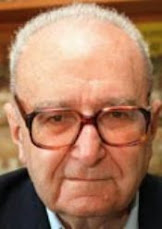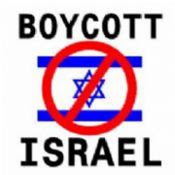Ayunos voluntarios
Los primeros diez días de Dzul-Hiÿÿa, especialmente el día de 'Arafa, para aquellos que no estén haciendo el Haÿÿ. Hafsa narró: "Hay cuatro cosas que el Profeta (s.a.s.) nunca dejó de hacer: ayunar el día de 'Âshwrâ, ayunar los primeros diez días de Dhul-Hiÿÿa, ayunar tres días de cada mes, y hacer dos raka'at antes del Salât subh". Transmitido por Ahmad y an-Nasâ-î.
Traducción y selección: Abdelwahid Gutiérrez.
Fuente: http://www.musulmanesandaluces.org/fiqh%20sunna/fiqh-intro.htm
The first ten days of Zhul-Hijjah, especially the day of Arafah, for those who are not performing the pilgrimage
-1- Abu Qatadah reported that the Messenger of Allah said: "Fasting on the day of 'Arafah is an expiation for two years, the year preceding it and the year following it. Fasting the day of 'Ashurah is an expiation for the year preceding it." This is related by "the group," except for al-Bukhari and at-Tirmizhi.
-2- Hafsah reported: "There are five things that the Prophet never abandoned: fasting the day of 'Ashurah, fasting the [first] ten [days of Zhul-Hijjah], fasting three days of every month and praying two rak'ah before the dawn prayer." This is related by Ahmad and an-Nasa'i.
-3- 'Uqbah ibn 'Amr reported that the Messenger of Allah said: "The day of 'Arafah, the day of sacrifice, and the days of tashreeq are 'ids for us--the people of Islam--and they are days of eating and drinking." This is related by "the five," except for Ibn Majah. At-Tirmizhi grades it sahih.
-4- Abu Hurairah stated: "The Messenger of Allah forbade fasting on the day of 'Arafah for one who is actually at 'Arafah." This is related by Ahmad, Abu Dawud, an-Nasa'i, and Ibn Majah.
At-Tirmizhi comments: "The scholars prefer that the day of 'Arafah be fasted unless one is actually at 'Arafah."
-5- Umm al-Fadl said: "The people were in doubt over whether or not the Prophet was fasting on the day of 'Arafah. I sent him some milk, and he drank it while he was delivering an address to the people at 'Arafah." This is related by al-Bukhari and Muslim.
Ibn 'Abbas reported that the Messenger of Allah, upon whom be peace, sent a person to announce: "Do not fast on these days, as they are days of eating, drinking and rejoicing with one's family." At-Tabarani related it in al-'Awsat.
Author: Sayyid Saabiq from his book Fiqh-us-Sunnah.
Source: http://www.jamaat.net/ebooks/Fus/fus3_52.html
Abû Hurayrah transmitió estas palabras del Mensajero de Allah: “No hay días más amados por Allah para que le adoréis que los diez [primeros] días de Dhul-Hiyya. Ayunar en cualquiera de ellos equivale a ayunar un año entero y realizar las oraciones nocturnas durante una de sus noches equivale a realizarla en Laylatul-Qadr”.
En otro hadiz, transmitido por ibn ‘Abbas, el Mensajero de Allah dijo: “Ninguna acción correcta hecha otros días es superior a las realizadas durante estos días”. (Bukhari). Se le preguntó al Profeta (saws): “¿Ni siquiera el Yihad en el camino de Allah?” Él contestó, “Ni siquiera el Yihad en el camino de Allah; excepto para la persona que fue por si mismo y con sus propios medios y volvió sin nada” (At-Tirmithi).
Los Ulemas no se pusieron de acuerdo sobre si las obras durante estos diez días son más valoradas por Allah o lo son las de los diez últimos del sagrado mes de Ramadán, al final llegaron a la conclusión de que las noches de los últimos días del sagrado mes de Ramadán son más valiosas y los días de los diez primeros días de Dhul-Hiyya son más valiosos.
Es una oportunidad para revivir la Sunnah del profeta, que la paz y las bendiciones de Allah sean con él, él en estos días solía hacer lo siguiente:
- Ayunar los nueve primeros días, nunca lo dejó. Según nos transmitió su mujer Hafsa: “Hay cinco cosas que Rasûlual-lâh (saws) nunca dejó de hacer: ayunar el día de 'Ashura, ayunar los diez primeros días de Dhul-Hiyya, ayunar tres días de cada mes y hacer dos raka’s antes del salât al-Subh [al-Fajr]”. (Abu Dawud).
De este hadiz debe entenderse que el Mensajero de Allah (saws) ayunaba “hasta el día décimo” de Dhul-Hiyya, sin incluir este último, ya que en el ‘Id al-adha está prohibido el ayuno.
Se puede también ayunar sólo el día de Arafa (el día 09 de Dhul-Hiyya). Abû Qatada transmite que el Mensajero de Al-lâh (saws) dijo: “Ayunar durante el día de 'Arafat conlleva el perdón por dos años, el año que le precede y el que le sigue. Ayunar durante el día de 'Ashura [el día diez del mes de Muharram] trae el perdón para el año precedente”.
Otras acciones meritorias en estos días son:
- Hacer muchas oraciones nocturnas (Qiyam a'layl).
- Hacer mucho du'a, sobre todo el día de "Arafa".
- Dar limosnas.


























.jpg)


.jpg)




Cap comentari:
Publica un comentari a l'entrada